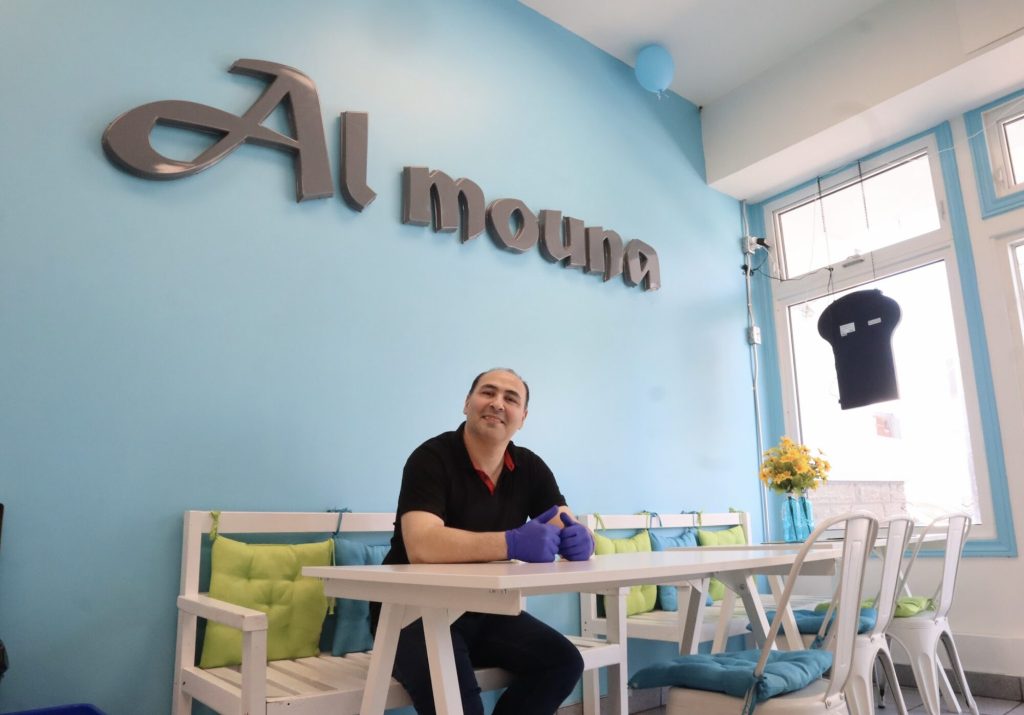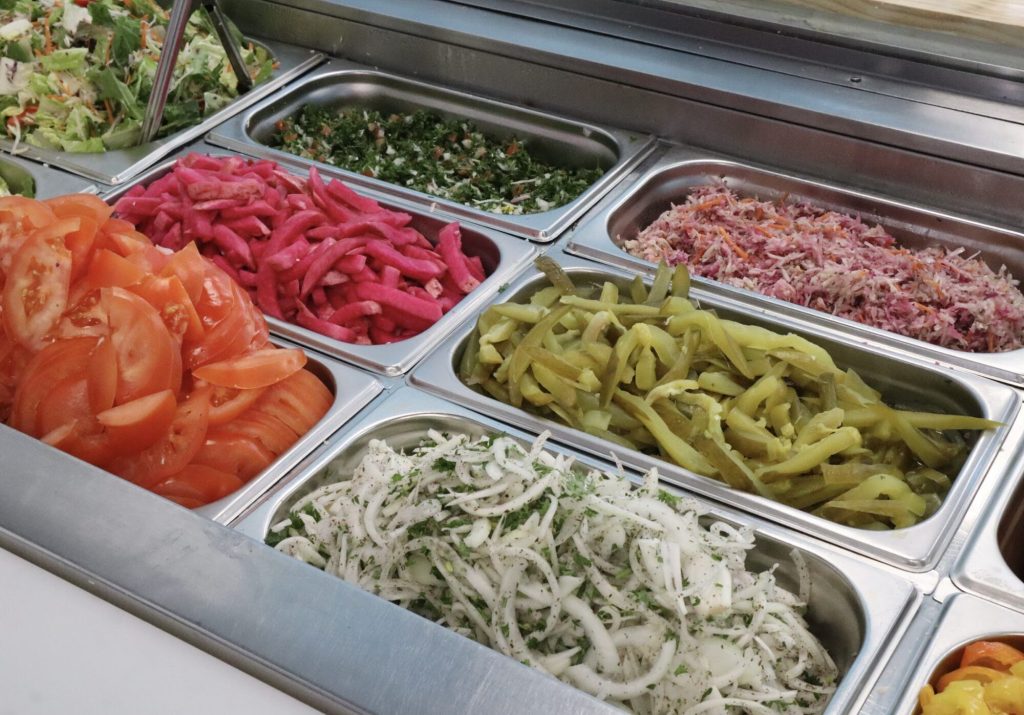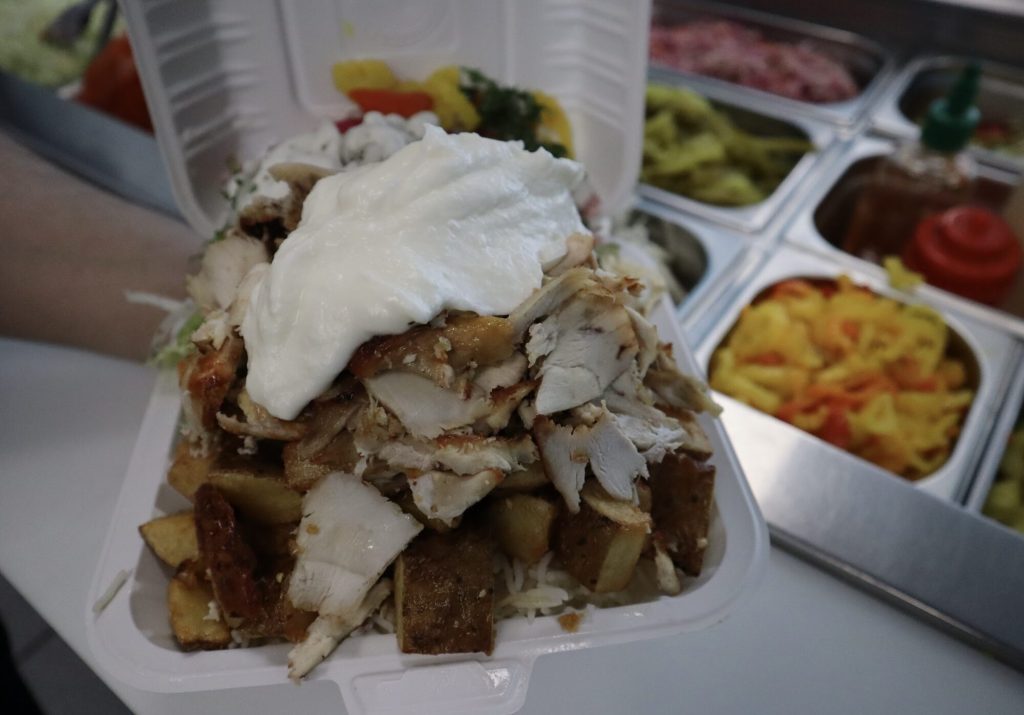When Mediterranean food lovers walk into Shawarma Al Mouna in Wellington West, they are greeted by a feeling of hospitality.
The tiled floors were installed and sky blue walls painted by owner Mohamad El Merhabik, who designed the space himself. Even the tables and chairs were built and crafted by his hands.
El Merhabik has been in the shawarma-making business for over 20 years. But it hasn’t always been easy. His more recent endeavor before this restaurant was in Portage in Gatineau, but that chapter ended when the COVID-19 pandemic forced people to stop working in government office buildings.
“I feel so sad when I remember those days. I lost all of my money there; I lost everything there. The government said they helped us but we didn’t get help. It was a loan, it wasn’t money,” said El Merhabik. “Those days we sold maybe only $50 to $100, but I wanted to keep my business. I kept it going for maybe four or five months, then the government decided to terminate my lease.”
He had to vacate the space in 90 days. Thinking of his two kids under 10, El Merhabik decided to give it another go in Wellington West.
“I’ve been in business for a long time. It’s hard for me to start working for somebody else. I decided to take a risk again and start building myself. I got my money from my brother, and then I started again,” the shawarma maker said. “I gave myself a chance.”
That chance has so far paid off. Shawarma Al Mouna has seen a steady flow of customers since opening a year ago. About eight staff work for the restaurant, but El Merhabik said he would be slow to grow.
Expansion would one day happen he said, but first El Merhabik would want to introduce delivery.
“Every month I want to start but I can’t because we are getting more busy. I want to keep the quality of the food,” he said. “Uber keeps contacting me to start with them. It’s not just about money; It’s about quality. We are thinking for the long term.”

Ottawa declared Shawarma Capital of Canada
It’s difficult to pinpoint when exactly the shawarma trend started; however its popularity outside of the Middle East began in the mid 1990s and early 2000s.
Many believe the fast food dish first started in Ottawa with Marroush, which opened on Elgin Street between Gladstone and Frank in 1984. El Merhabik opened a Shawarma shop with his brother under the same name at Rideau and Dalhousie in 2005. They sold it off a few years later.
Related: The inside story about how the shawarma became Ottawa’s most popular fast food.
During a city council meeting in April, Ottawa was declared the Shawarma Capital of Canada after a motion was put forward by Innes ward councillor Laura Dudas. She told KT the intent was to help boost Ottawa on the global map.
“I looked at this as an opportunity to highlight something that is unique and interesting to our city. Ottawa is very diverse and we don’t always promote that in Canada and the world,” she said.
The numbers don’t underestimate the importance of shawarma in Ottawa. There are more restaurants that sell the Mediterranean dish than there are Tim Hortons, McDonalds, or even gas stations.
Dudas said she received a letter from the ambassador to Lebanon who appreciated the initiative, and said he’s interested in starting a new Shawarma festival in the Nation’s Capital.
“These Shawarma shops, the vast majority, are owned by local people, people who are newcomers to our city in many cases,” said Dudas. “They are buying up local produce and hiring local workers. They are driving the economy in the tens of millions of dollars.”


